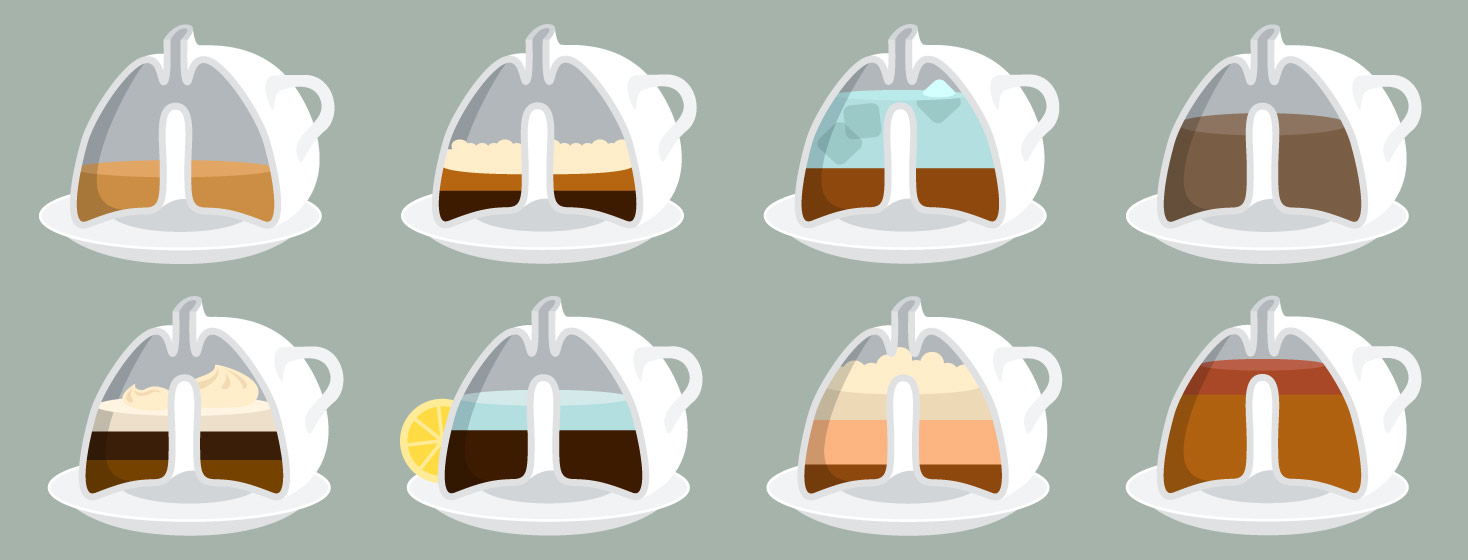Is Drinking Coffee Good or Bad for Asthma?
As we wake in the morning, one of the first things we streamline to in the morning is coffee. That invigorating elixir that starts most people's days around the world, not just asthmatics. However, some of us are drinking that caramel-colored cough syrup for more than just the familiar flavor and consciousness coaxing caffeine.
Well actually, we are drinking it for the caffeine, but why does caffeine help that consistent cough? Some asthmatics report coffee really helping their lungs, but is coffee good for us? Here’s a little bit on coffee, how it affects our lungs, and what coffee is best to be drinking as an asthmatic.
Coffee and your lungs
Coffee has caffeine… evidently. Other drinks that have caffeine also help asthma, like tea or cola. So the active stimulant, caffeine is what our asthma likes; but that’s because it mimics something else.
Caffeine works in our lungs in a similar way to ‘theophylline’, a bronchodilator drug. Theophylline is not commonly prescribed to those with pulmonary implications. One reason why: too many people already drink caffeine and a lot of it. As a result, most asthmatics are self-medicating with coffee instead, without knowing that there is a pharmaceutical twin. Although caffeine and theophylline are twins in function, they are not in potency. Caffeine is considered a weak bronchodilator, even at the amounts we guzzle down, and it is not recommended to attempt management of asthma with only coffee.
Side effects of coffee on asthma
The side effects of coffee are actually also similar to theophylline: nausea, trouble sleeping, increased urination, irritability, and headaches. However, coffee has a quality that theophylline does not, which may cause further complications to our asthma, that's acidity.
Coffee typically has a pH between 4.6 and 4.3, making it quite an acidic way to start the morning. Especially when our stomach is empty. Depending on your breakfast you might be starting your gut out with an acidic blast, and that's GERD’s (gastroesophageal reflux disease) or 'acid reflux’s', best friend. Acid reflux is already a common complication for asthmatics; often accompanying a flare as a trigger or as a side exacerbation. So, although coffee is one of the ways we think we manage our asthma, it could a double-edged sword that is getting us in the end.
Best coffee?
Not all coffee is created equal. Some regions of coffee are known for higher acidity, like Ethiopia or Kenya. While other regions, like Sumatra, are known for having lower acidity. If you enjoy that tingle on your tongue, the fruity or citrus undertones, then you are probably into higher acidity coffee. On the flip side, if you enjoy the roasty toasty flavors and the smooth softer brew, then you are drinking a bean that has lower acidity.
The flavor that you are consuming directly links to the amount of caffeine in the cup. Caffeine is highly volatile and is burned out of the coffee as it roasts. Higher acidity coffee beans are typically roasted to a lighter roast, preserving the caffeine content and the lighter flavors that would burn out as well if heated too much. Thus, a dark roast is lower in caffeine and is usually the desired roast for a lower acidity bean.
It's pretty simple actually:
- High acidity = High caffeine = Bright flavors
- Low acidity = Lower caffeine = Softer flavors
Balancing acidity and caffeine
If you are prone to acid reflux, then a lower acidity, dark roast, might be your best cup. However, it will come with less of that caffeine kick we like to experience in the morning. Seeing as it is not recommended to try and manage asthma with caffeine anyway, it might be wise for asthmatics to limit the number of light roasts we consume. If you are drinking coffee from a specific region because you really love the flavor, maybe check to see what the acidity of that coffee is.
Also, a tip from a fellow asthmatic coffee lover: I make my cold brew coffee with alkaline water to counter some of the acidity of the coffee I'm using. This way I can get great flavor, with lower acidity and a good amount of caffeine.
Ultimately is coffee good or bad for asthma?
Most of us drink coffee, asthmatic or not, it is one of the most commonly consumed beverages in the world. However, as asthmatics, coffee might have more of an impact on our physiologies than others who drink it. It has caffeine that works as a mild self-medication; however, its acidity could be a potential complication.
It's best to learn a little more about the brew that you're swigging in the morning. Where the beans are from, maybe how dark the roast. It might be good, but is it the best that you could be drinking? With a little information and a bit of research, you could unlock that perfect cup for your taste buds, that hazy morning head, and your lungs.

Join the conversation